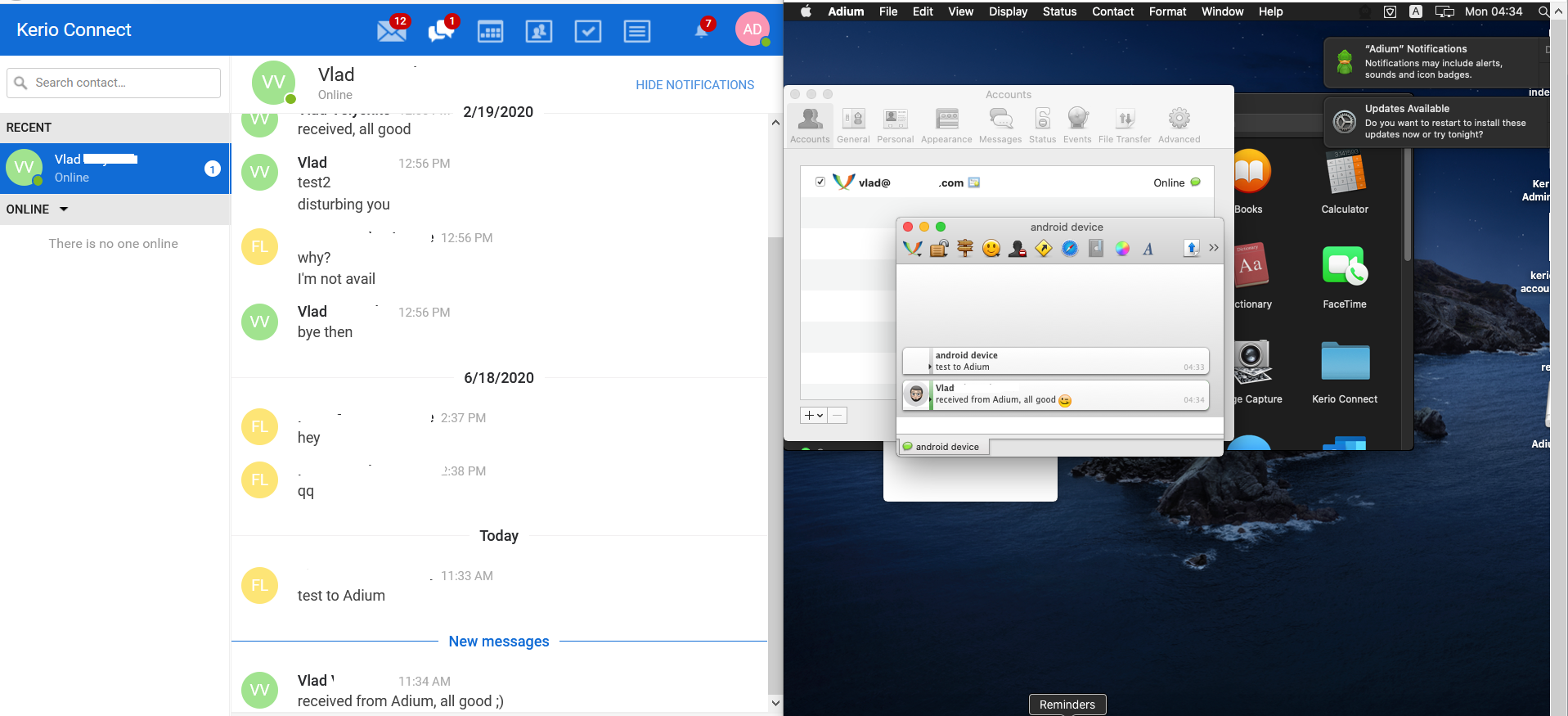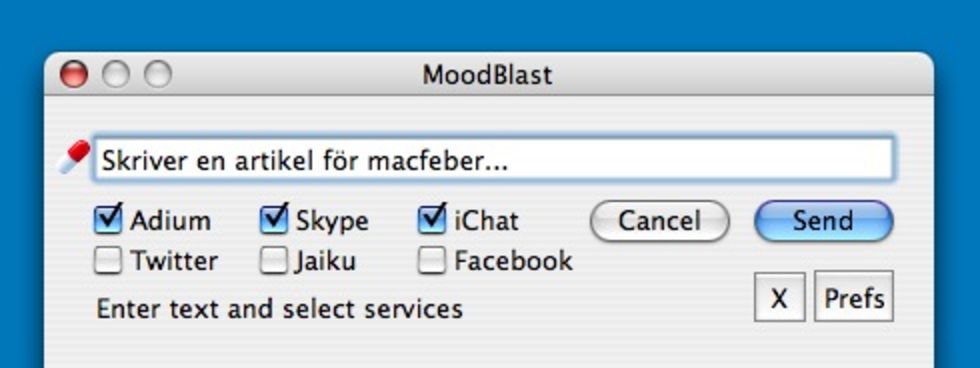

- #ADIUM FACEBOOK COOKIES INSTALL#
- #ADIUM FACEBOOK COOKIES UPDATE#
- #ADIUM FACEBOOK COOKIES CODE#
- #ADIUM FACEBOOK COOKIES OFFLINE#
Overall, I’m impressed with the early work already done to make this plugin work.
#ADIUM FACEBOOK COOKIES OFFLINE#
The easy workaround for this is to stop using the Offline Message Emulation plugin. Of course, the issue here is the Offline Message Emulation plugin is not aware of this and suggests you store the message as a pounce until they come back online. Facebook has native offline messaging support, in that when you send a message, the recipient will receive the message when they get back online. Often contacts appear offline when they’re not due to how Facebook Messenger works (or doesn’t), especially when they’re using a mobile device. Issues with the offline message emulation plugin.įinally, if you happen to use the “Offline Message Emulation” plugin (which was quite popular back in the days when MSN Messenger didn’t support the function natively), the Facebook plugin doesn’t play nicely with it. Besides, I’m the only one using this machine.
#ADIUM FACEBOOK COOKIES CODE#
I decided to go for the latter, as I expect to be rebuilding updated versions of the code on a regular basis, and copying them to a folder under my user is a bit quicker.
#ADIUM FACEBOOK COOKIES INSTALL#
Finally after compiling, you can either use the “make install” command to install the plugin system wide, or copy the “libfacebook.so” file to “~/.purple/plugins”. I opted to use the latest code on GitHub. The instructions on doing this were quite clear on which dependencies were needed. Linux users will need to compile the plugin from source, either from the releases folder, or from the latest source on GitHub (see the section here) as compiling versions for every Linux flavour and architecture would be very time consuming. The kind folks who’ve created this plugin have already pre-compiled glib and facebook DLLs, and these can simply be dropped into Pidgin’s program folder (more details can be found in the Installing on Windows section here). Thankfully, there’s now a new plugin for Pidgin called “purple-facebook” hosted on GitHub which utilises Facebook’s API v2, and whilst there are a couple of bugs when using it, overall it’s quite stable, and far better than previous direct integrations with Facebook’s API. Finally, you can enable Pidgin to trigger things on particular events with the help of buddy pounces. For example, Pidgin integrates with Ubuntu’s Unity desktop allowing unread notifications to go to the messaging applet, as well as notifications to integrate seamlessly into Unity’s pop up notifications with libnotify. The reason for wanting to use a stand alone application is for tighter integration with the Operating System used. The question is, can you still connect to Facebook Messenger outside of your web browser? At the time of writing, no official Linux application has been released by Facebook. It’s also been noted that Windows users may get better results if you compile from the latest source from GitHub, and/or using the latest version of libjson-glib-1.0.dllįor me, however, the XMPP endpoint was still happily accepting connections and use right up to 10th July, but sadly, it now looks like the life support system has finally been switched off.
#ADIUM FACEBOOK COOKIES UPDATE#
Update : Another change to the source seems to have resolved the Offline Message Emulation bug.

I’m leaving them in for historic purposes.

Update : A change was added to GitHub a few hours after publishing this article which fixes the HTML appearing in messages bugs mentioned.


 0 kommentar(er)
0 kommentar(er)
